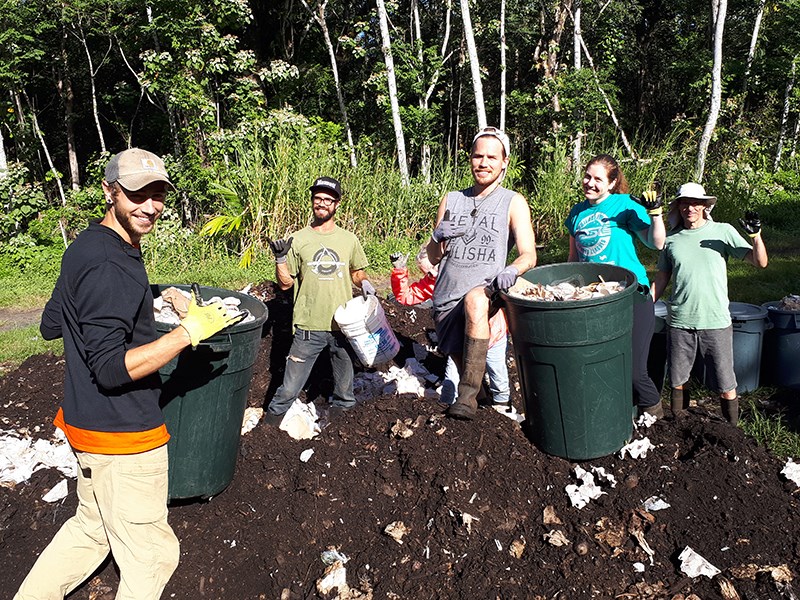Most of us are pretty comfortable adopting new habits, so long as they have some clear benefits to us and our wallets. Adopting a waste-reduction lifestyle can usually offer these kinds of rewards.
That said, some earth-friendly changes may be less appealing. Becoming fully immersed in loving up the planet may sometimes require you get over the “ick” and step in a few puddles.
Making a big backyard compost heap, salvaging treasure from the trash can, cleaning up illegally dumped trash or removing nails from reusable lumber may get you a little scuffed up, but that is what truly dealing with our so-called waste sometimes looks like.
Along the journey toward civilization, we have become isolated from the realities of the waste stream. Many of us do not know where our food comes from, let alone how compost is formed, why bioplastics are contaminating the soil or how inefficient some kinds of recycling are. This can result in unintended wastefulness.
The more closely attuned we become with our waste, the more likely we are to know how to reduce it in the first place.
Take the challenge this week to put on some gloves and look through your trash can before setting it out to the curb and forgetting about it.
What’s really in there? Do members of your household need reminding of where the compost bucket is? Do you have lingering questions about whether something is actually recyclable? Is there anything that can be salvaged for an art project or easily repaired? Can certain packaged foods be replaced with others that have more recyclable packaging?
Beyond this, you can investigate your compost pile and see how it is doing. If it is not heating up at all, you likely need to gather some dead leaves, old grass or shred some newspaper or cardboard and add it to your pile. These are carbon-rich and needed ingredients for a healthy compost heap.
If these are up to par, you can put on some gloves and clean up an identified trash zone in your neighbourhood. Bring some garbage bags and love up our local trails. Check out the TrashOut app for a GPS list of local illegal dumpsites that have been identified and photographed for angels such as you to clean up.
There is something deeply satisfying about coming home with twigs in your hair and pants ready for the laundry. Hope you have a blast getting your hands dirty.
Let’s Talk Trash is contracted by qathet Regional District to deliver its waste reduction education program. For more information, email [email protected] or go to LetsTalkTrash.ca.
Join the Peak's email list for the top headlines right in your inbox Monday to Friday.



